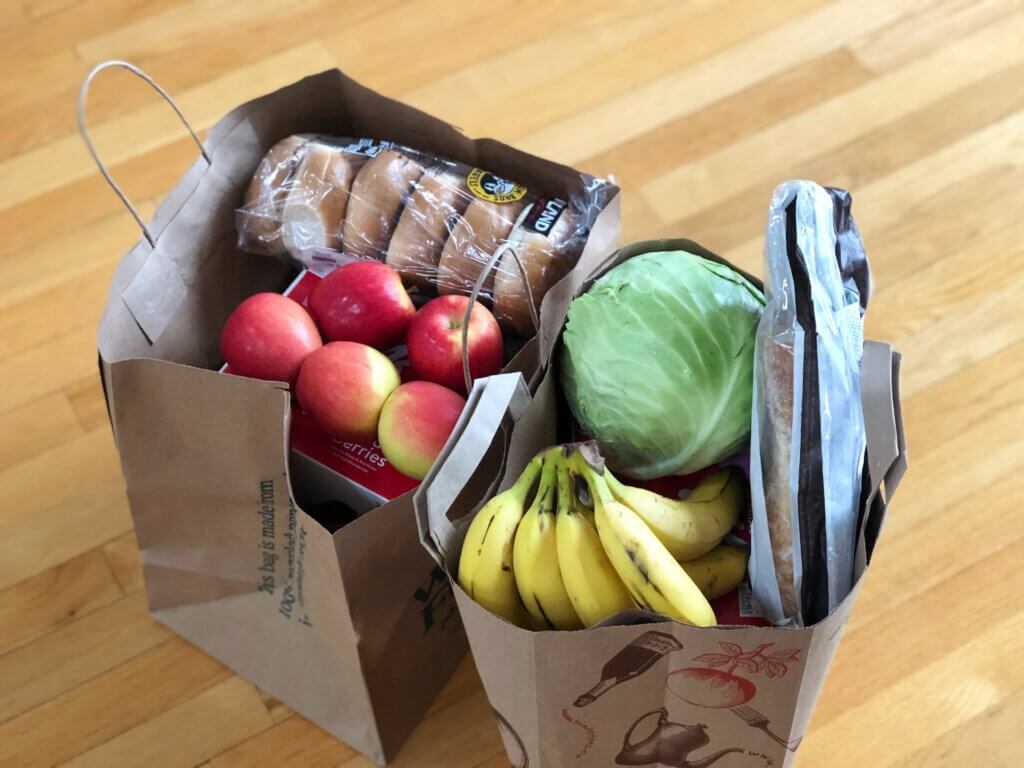
Inflation is visible almost everywhere. However, it also stands out that only one group of people is actually affected by the problem.
Anyone who was shopping at Migros, Coop, Manor or Globus last Saturday will know what we mean. In many places there were long lines at the checkouts wherever you looked.
Those waiting may have wondered why, in view of the inflation, shopping in Switzerland’s higher-priced stores is still going so well.
Opportunities to save
After all, as long as people do not change their shopping behavior, inflation is no problem for a country. After all, many customers of Migros, Coop, Manor or even Globus could do their weekly shopping at lower-priced retailers such as the discounters Denner, Lidl or Aldi and save a lot of money.
Even shopping beyond the country’s borders in Germany, France or Italy would still be conceivable as an alternative, where Swiss could take advantage of the current benefits of their strong currency.
Accept product changes
Inflation only strikes when people run out of alternatives. Initially, consumers usually switch to cheaper brands when making purchases if the prices of their regular goods increase. And if those prices rise too much, they later switch to some inexpensive replacement product.
Economists usually use the standard example of consumers substituting cheaper jam for butter, for example. Switching products is not pretty, but it is always accepted as an alternative in times of tight budgets.
Filling up less
But food is only one part of the basket of goods that inflation is hitting. Savings behavior can also be seen in other areas. According to a recent study by the consulting firm EY, which refers to Germany, where inflation is much more pronounced than in Switzerland – at almost 10 percent – people are saving primarily on fashion and consumer electronics.
In the survey, 56 percent of respondents said they would hold back in these areas and buy little or nothing new.
However, gas stations and pharmacies are now also being avoided in many cases. “Almost every second person is currently filling up less, and more than every fourth person says they are saving on medicines,” said the study, which was reported exclusively by the newspaper “Welt“.
Trips and gym
At the top of the Germans’ cross-off list, according to EY, are orders placed with delivery services. For example, half of consumers want to both order less prepared food and use the services of food delivery companies less often.
At the same time, German consumers have also identified savings potential in leisure activities: for example, in vacation trips, visits to restaurants, bars and cinemas, gym membership fees or even on the number of streaming services downloaded.
In all of these areas people still have opportunities to avoid higher prices or to make savings in order to get by with their household budgets.
End of the line
It becomes more difficult for people who have no alternatives and are fully exposed to inflation. This includes commuters from rural areas who have to get to work and then inevitably have to pay for more expensive fuel.
Consumers can also hardly change energy providers in practically all cantons, and are also largely at the mercy of their price increases.
People who have already exhausted all of their savings options are also coming under pressure. And these are the people who are really affected. They can no longer adjust their shopping baskets to fewer products and services that are not as badly affected by inflation.
Fast food instead of gourmet
According to the EY study, respondents plan to spend more money on food purchases. This seems logical, if it may no longer be a visit to the restaurant, then people will cook at home to spend less money. But before that happens, consumers usually swing to cheaper alternatives like fast-food restaurants.
No wonder, then, that McDonald’s third-quarter 2022 sales rose a lofty 9.5 percent globally on a comparable basis.
Retailer revenues were also up. U.S. retail giant Walmart reported customer foot traffic increased 2.1 percent in the third quarter and revenue grew 8.2 percent.
Signals in the retail sector
However, the American clientele would save on consumer electronics and household goods. It may not have to be that new television set, after all. This is in line with the statements from Germany. And the retail trade notices all of this immediately when stagnating stock levels rise.
According to a study by the major bank UBS, reported by the “WSJ“, discount offers increased markedly in the U.S.A. Consumers resorted to taking up special promotions significantly more.
Switch in brands
Walmart, however, noted no noticeable consumer switch from premium to lower-priced private brands this year, despite all the price increases.
For Switzerland, retail sales also increased markedly, as reported by muula.ch.
Now we just have to keep an eye on whether there will continue to be those long queues at Migros, Coop, Manor or Globus on Saturday, or whether the queues will form at the discounters Denner, Lidl or Aldi.
11/22/2022/kut./ena.





